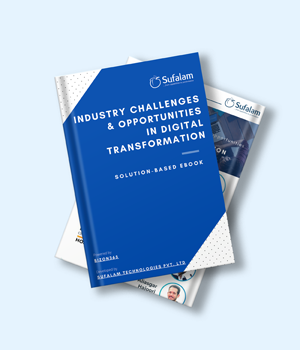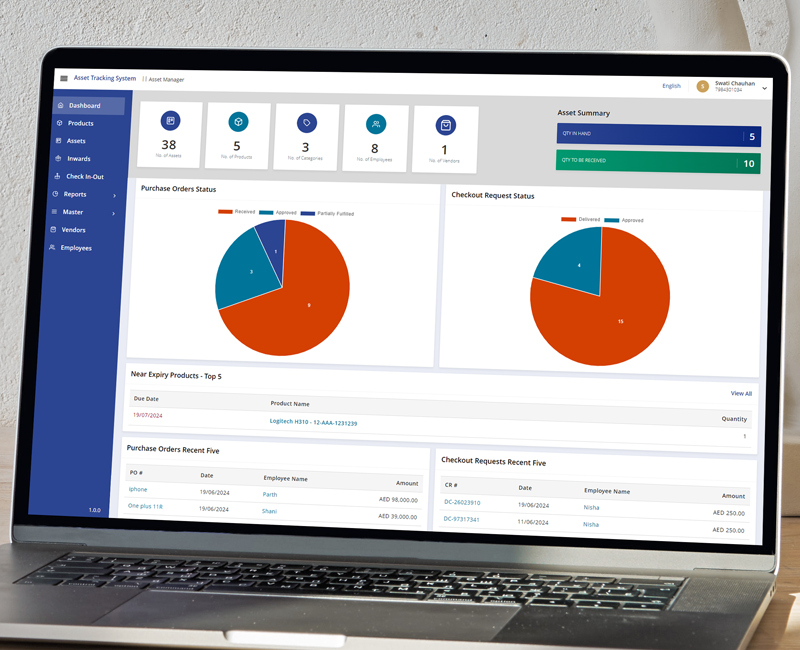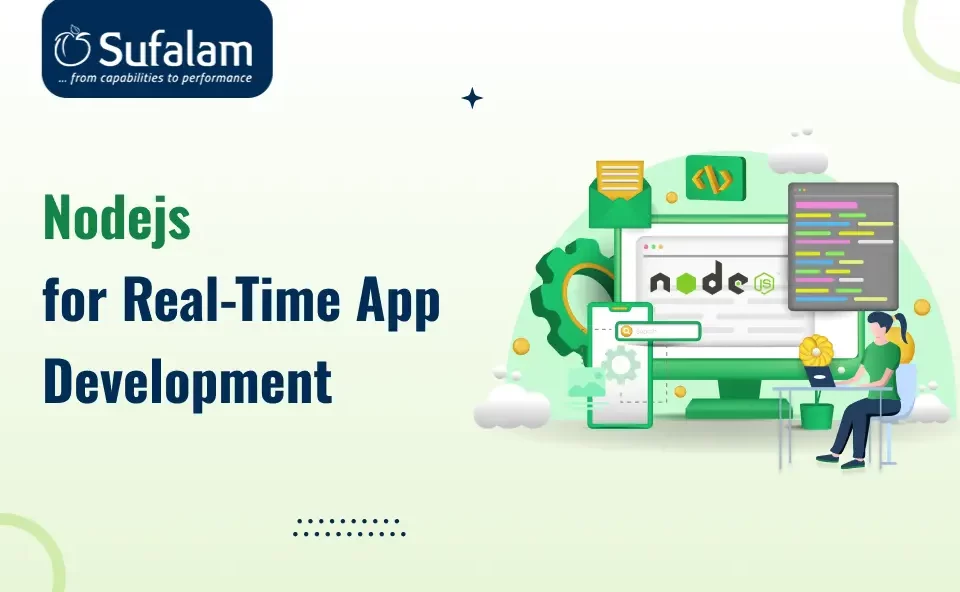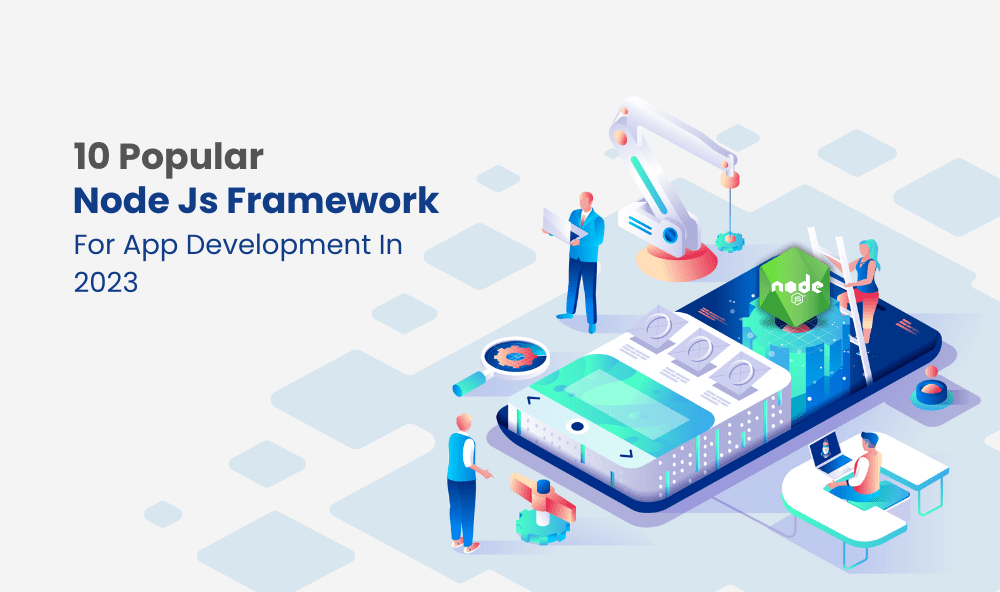
The need for web apps has grown dramatically over the past few years. To create the best apps, companies, and software developers are evaluating several programming languages and frameworks.
But according to a recent user poll, Node js framework are the preferred option for four out of every five software developers.
Node js offers a wide range of frameworks that come with numerous tools, templates, and libraries to help developers get over obstacles when creating apps.
While some Node js framework promote automation, others allow development independence; some offer speed, while others offer expansion options. As a result, picking the best Node js framework can be difficult, especially given the number of choices available.
To make your task a bit easier, we will be listing some of the best Node js framework for app development. We will be adding everything you need to know about the best Node js framework & Nodejs features.
Let’s get started!
Top 10 Best Node js Framework for App Development!
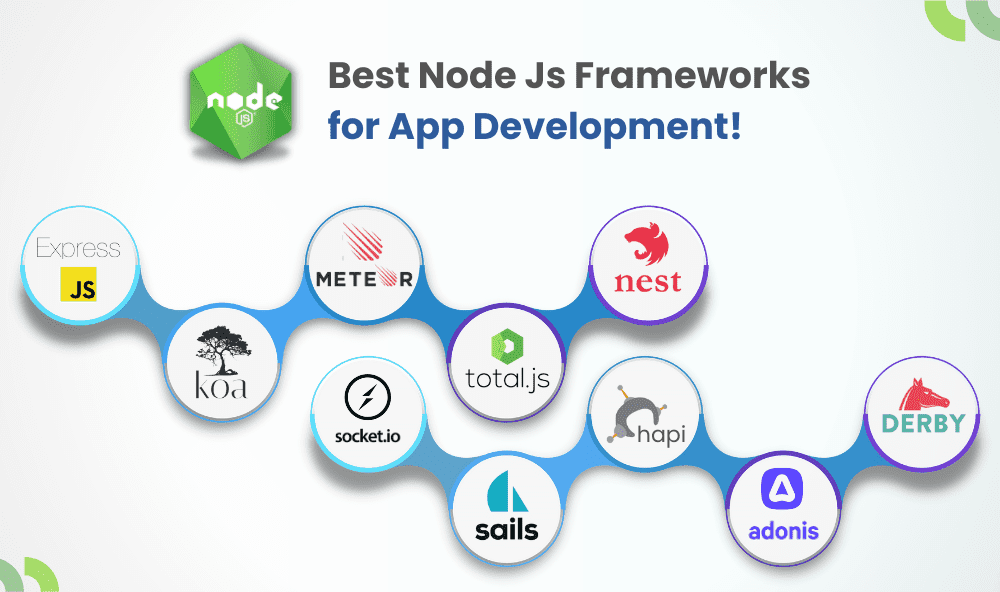
1. Express.js
Node js Express framework is a prominent web application framework. It is trusted by an astounding 1733 companies located all over the world, and it receives about 18 million downloads each week and 20k stacks.
The Node js Express framework enables programmers to create single-page, double-page, and hybrid enterprise applications. This framework consists of several components that connect together to create the final product.
Features of Express.js
- Express.js has a model view controller feature that makes it easier to make original apps.
- Express.js works in the same way as a routing table or a set of routing modules.
- For improved efficiency, the Node js Express framework provides more than 14 engine templates, HTTP techniques, and synchronization.
- The ability to inject heavy load packages into Express.js contributes to the framework's capabilities extension.
RELATED: Laravel vs Node Js Which is Better?
2. Koa.js
Koa.js is another open-source framework with a backend-tech stack. It is a straightforward and highly adaptable Node js web application framework that receives about a million downloads each week. Furthermore, it can be found in over 200 stacks and is trusted by approximately 90 businesses.
There are several features that support the development of Web and mobile applications without any issues.
Features of Koa.js.
- Koa.js stands out for its use of async functions, which minimize callbacks and improve issue management.
- Koa.js makes use of a variety of tools and techniques to make the process of creating the online application simple.
- This incredible Node js web application framework is establishing itself on the market thanks to a variety of techniques that improve interoperability, resilience, and ease of coding.
3. Meteor.js
Meteor.js is an open-source, isomorphic, Javascript web platform that automatically propagates data updates to clients without the developer's involvement. Most notably, it works well with several device operating systems, including Android and iOS for mobile devices and desktop applications, all of which are wrapped in the Javascript language.
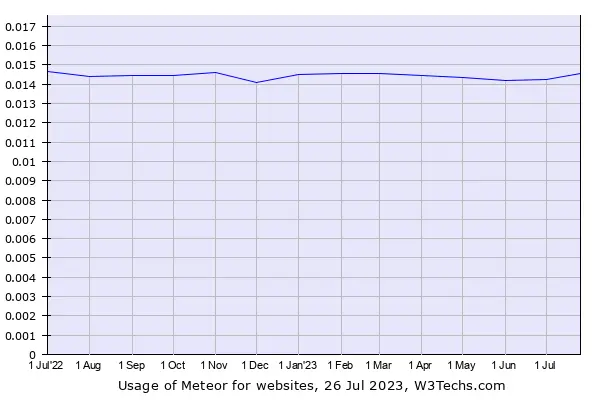
Source: W3Techs.com
Features of Meteao.js:-
- Meteor provides extensive libraries and testing capabilities to keep up with client-server interactions.
- Metorjs is well-known for its smooth data transfer between client and server, which is required by most applications with high-streaming, real-time capabilities, and can significantly contribute to improving Node.js performance.
- Meteor is the ideal Nodej framework for creating straightforward, effective, and contemporary online apps.
- Large support from the community, open-source framework
- It is simple to integrate with different frameworks.
4. Total.js
Total.js is the one-and-only framework that provides a CMS-like experience and is equipped with each essential element required to create a Node js-based web application. The Total.js framework comes in various variants, including CMS, Helpdesk, and Eshop.
The Total.js framework is speedy and needs little to no assistance when developing apps. It offers dependable services and the adaptability to create a variety of IoT applications.
Total.js features-
- Total.js includes a NoSQL database, thereby rendering application development easier.
- Total.js incorporates functionality such as Simple Mail Transfer Protocol and Modular Coding Architecture.
- Total.js allows for full front-end development and integrates with several database management systems, such as MongoDB, Angular, MySQL, Ember, and others.
5. Nest.js
NestJS is a cutting-edge Node js framework for developing efficient, dependable, and scalable server-side applications. When you hire node js developers, it helps them in developing modular, extremely scalable, and stable server-side web apps. It offers extensibility and uses the Model-View-Controller (MVC) design pattern.
NestJS's native support for TypeScript, which gives you access to optional static type-checking, robust tools for tremendous apps, and the most recent ECMAScript capabilities, is its standout feature.
Features of Nest.js.
- It is truly adaptable because it supports the use of any additional libraries thanks to its modular architecture.
- It provides a flexible ecosystem that serves as the foundation for all types of server-side applications.
- Nextjs uses the most recent JavaScript features to provide design patterns and advanced solutions for Node js development company and developers.
6. Socket.js
Socket.io is a JS-based framework that is essential for constructing real-time applications and establishing interaction between the client and server endpoints. Socket.io is an excellent Node js web application framework for developing real-time applications or chatbots.
Features of Socket.io:-
- Socket.io provides a straightforward technique for simplifying data transfer over the network between linked devices.
- Socket.io is ideal for powering a variety of websites since it includes built-in support for numerous web protocols, including HTTP, WebSocket, and Polling.
- A dependable framework for the transmission of information and communications.
- Support for multiplexing
- APIs that are comparable for both client-side and server-side programming.
RELATED: Best Node Js E-commerce Framework
7. Sail.js Framework
Sails.js supports modern, data-oriented development and is similar to frameworks like Ruby on Rails MVC design style. It is flexible in integrating Javascript frameworks and compatible with all databases.
It is the best Node Js framework for creating sophisticated, personalized applications. By being more adaptable and open, its particular code writing standards assist in lowering the amount of required code for integration with npm modules.
Features of Sails.js:-
- Sails is a frontend-agnostic backend framework. This lightweight framework uses Socket.io for WebSockets and Express for HTTP queries.
- It saves time and effort because you may utilize the same API that another online service or development team uses.
- Object Relational Mapping (ORM) for framework database interoperability, enabling seamless data management in applications built with React and Node.js.
- Extremely interoperable with all front ends, including Angular, React, Android, iOS, and others. You can hire the best Nodejs development company to build the best full-stack application. They use the Nodejs best practices to offer stunning solutions.
8. Hapi.js
Hapi is a readily accessible server and open-source web application platform. It is well-known for constructing proxy servers, REST APIs, and other desktop apps due to the framework's dependability and security features.
It comes with a plethora of built-in plugins, so you don't have to worry about utilizing unapproved middleware. Hapi.js works flawlessly in the development of more safe, scalable, real-time, and social-media apps.
Features of Hapi.js.
- You may quickly create highly scalable applications with its assistance.
- little overhead
- dependable defaults
- There is a wide variety of plugins and themes available.
- Getting rid of bugs quickly and easily would improve security and privacy.
- Works seamlessly with MySQL, MongoDB, and other databases.
- compatible with HTTPS proxy applications and the rest APIs
- Default caching, authorization, and input validation.
9. Adonis.js
Adonis.js is a Node js backend framework used to create dynamic and fully functional web application servers. It facilitates database management, routing, logging, caching, etc. It has strong support for databases like MongoDB, MySQL, and others.
Features of Adonis.js.
- Adonis.js has a CLI for project management and is simple to set up. Its vast library of plugins and modules makes it simple when you hire Nodejs developers to include functionality in their apps. Strong and adaptable framework for web applications of all sizes.
- It also has good security features; it includes a program that protects the website from several threats.
- It adheres to the MVC design and emphasizes efficiency in task completion.
- It includes modules for Redis, emails, data validation, ORM, and security.
- Smooth learning Curve.
10. Derby.js
Derby.js is among the top full-stack Node js frameworks and is designed to build real-time commercial applications. Derby.js allows the same source code to be run on both Node js and the browser, which eliminates the need to write separate client and server end programs. Derby.Js uses the MVC design pattern. Real-time app development can benefit from this nodejs microservices architecture.
Features of Derby.js
- Derby.js has a built-in data synchronization engine that enables flawless sync between the server, app database, and browsers.
- The advanced framework offers a simplified scripting tool that makes it possible to create multi-user applications while also allowing offline use.
- Derby.js provides many coding customization options.
- Script development is bidirectional, which aids in the development of client and server-side services.
To conclude
In conclusion, Node js has established itself as a powerhouse in the world of app development, and the availability of robust frameworks has further solidified its position. As we explored the 10 best Node js frameworks for app development, it became evident that each framework brings its unique strengths and capabilities to the table, catering to diverse project requirements and developer preferences.
Ultimately, the choice of the best Node js web framework depends on the specific needs of your project, the scale of the application, the team's expertise, and the overall development goals, as well as a thorough understanding of the pros and cons of Node.js frameworks.
It is essential to evaluate the strengths and weaknesses of each framework and choose the right one as per your specific business needs.
If you are still confused and require assistance in choosing the right framework or are willing to develop a feature-rich application using the Node js web application framework, then reach out to the leading Node js development company - Sufalam Technologies.
When you hire Node js developers from our team, they will understand your requirements and offer customized solutions accordingly.
Frequently Asked Questions
Is Node js a full-stack framework?
No, Node js is not a full-stack framework. It is a server-side runtime environment for executing JavaScript code. To build a full-stack application, you need to combine the Node js backend framework with front-end technologies like HTML, CSS, and JavaScript frameworks.
Can I build an Android app with Node js web framework?
Yes, you can develop Android apps with Node js, but not directly. Node js is primarily used for server-side development and is not a native platform for building Android apps. However, you can use frameworks like React Native or NativeScript, which utilize JavaScript (Node js ) to develop cross-platform mobile applications, including Android.

